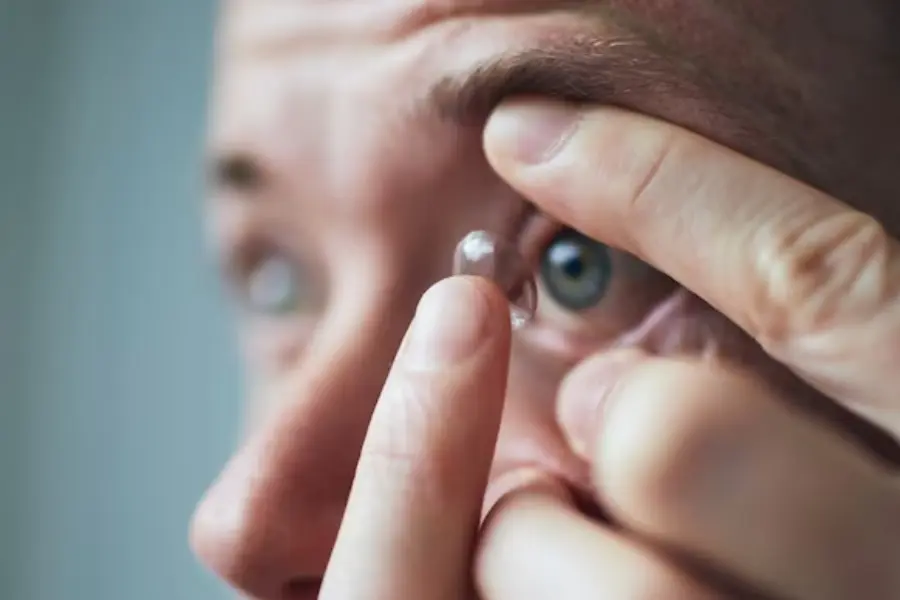
A good night's sleep is essential for overall health, but sacrificing eye health by sleeping with contact lenses on can lead to a myriad of problems. Many people are guilty of this habit, unaware of the potential risks it poses to their eyes. In this blog, Dr Nandita Rane, a trusted eye specialist in Chembur explains the reasons why you should never sleep with contact lenses and emphasises the importance of proper eye care for maintaining clear vision.
One of the primary concerns associated with sleeping in contact lenses is the reduced oxygen supply to the cornea. Contact lenses act as a barrier, limiting the amount of oxygen that reaches the cornea, especially when the eyes are closed during sleep. This deprivation can lead to discomfort, dryness, and, in severe cases, corneal neovascularisation, where new blood vessels grow into the cornea.
Sleeping with contact lenses significantly increases the risk of eye infections. The combination of reduced oxygen and the accumulation of debris and bacteria on the lenses creates an ideal environment for bacterial and microbial growth. This can result in conditions like microbial keratitis, a serious and painful infection that can lead to permanent vision impairment if not treated promptly.
Wearing contact lenses for extended periods, including during sleep, can cause dryness and discomfort. The lenses absorb moisture from the eyes, leading to irritation and a gritty feeling. Dr Nandita Rane - a successful eye doctor in Chembur has noticed that prolonged dryness may contribute to the development of conditions such as dry eye syndrome, impacting visual clarity and overall eye comfort.
The cornea maintains its shape through a delicate balance of pressure and hydration. Sleeping in contact lenses can disrupt this balance, causing the cornea to warp or change shape temporarily. This distortion can result in blurred vision and discomfort upon waking, requiring time for the cornea to return to its normal state.
When contact lenses are worn continuously, protein and lipid deposits from the tear film can accumulate on the lens surface. These deposits not only reduce lens oxygen permeability but also create a breeding ground for bacteria. Regular removal and cleaning of lenses are essential to prevent this buildup and maintain optimal eye health.
You must ensure to clean the lenses with a lens cleaning solution. Do not clean them with water or any other form of liquid.
In conclusion, the risks associated with sleeping with contact lenses are substantial and can have lasting consequences on eye health. To preserve clear vision and avoid potential complications, it is crucial to adhere to proper contact lens care practices, including removal before bedtime. Regular eye check-ups by a renowned eye specialist doctor like Nandita Rane, open communication with your eye care professional, and a commitment to following recommended guidelines will contribute to long-term eye health and a lifetime of clear, comfortable vision. Remember, your eyes deserve the best care, so give them the rest they need by saying no to overnight contact lens use.